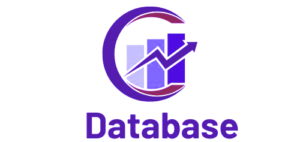A business database is a structured collection of data that is used by businesses to manage, store, and analyze information related to their operations, customers, products, or services. It serves as the foundation for decision-making, marketing, customer relationship management, and operational efficiency.
Types of Business Databases:
- Relational Databases (RDBMS):
- Structured data is stored in tables with rows and columns.
- Common systems include MySQL, PostgreSQL, Oracle Database, and Microsoft SQL Server.
- Used for businesses that require complex queries and relationships between data.
- NoSQL Databases:
- Designed for unstructured or semi-structured data, such as large volumes of social media data or log files.
- Examples include MongoDB, Cassandra, and CouchDB.
- Ideal for businesses dealing with large-scale data or requiring scalability.
- Customer Relationship Management (CRM) Databases:
- Specially designed to manage and analyze customer interactions, helping businesses improve customer relationships and sales.
- Examples include Salesforce, HubSpot, and Zoho CRM.
- Data Warehouses:
- Centralized repositories for large amounts of structured and unstructured data from different sources.
- These are used for analytics and reporting.
- Common tools include Amazon Redshift, Google BigQuery, and Snowflake.
Benefits of Using a Business Database:
- Improved Decision-Making:
- Data stored in a business database provides valuable insights that help with informed decision-making. For instance, analyzing sales data can reveal trends and inform strategies.
- Enhanced Customer Relationships:
- Customer databases allow businesses to understand customer needs and personalize communication and offers, improving engagement and loyalty.
- Operational Efficiency:
- Databases help streamline operations by organizing inventory, tracking orders, and monitoring employee performance. This leads to better resource management and cost savings.
- Data-Driven Marketing:
- By analyzing customer behavior and preferences, businesses can design targeted marketing campaigns that are more likely to convert and yield higher ROI.
- Scalability and Flexibility:
- A good database can grow with the business. As the volume of data increases, businesses can scale their databases to handle more records and transactions.
- Regulatory Compliance:
- Maintaining accurate and organized data helps businesses comply with industry regulations (such as GDPR or HIPAA), ensuring that customer and financial data is secure.




